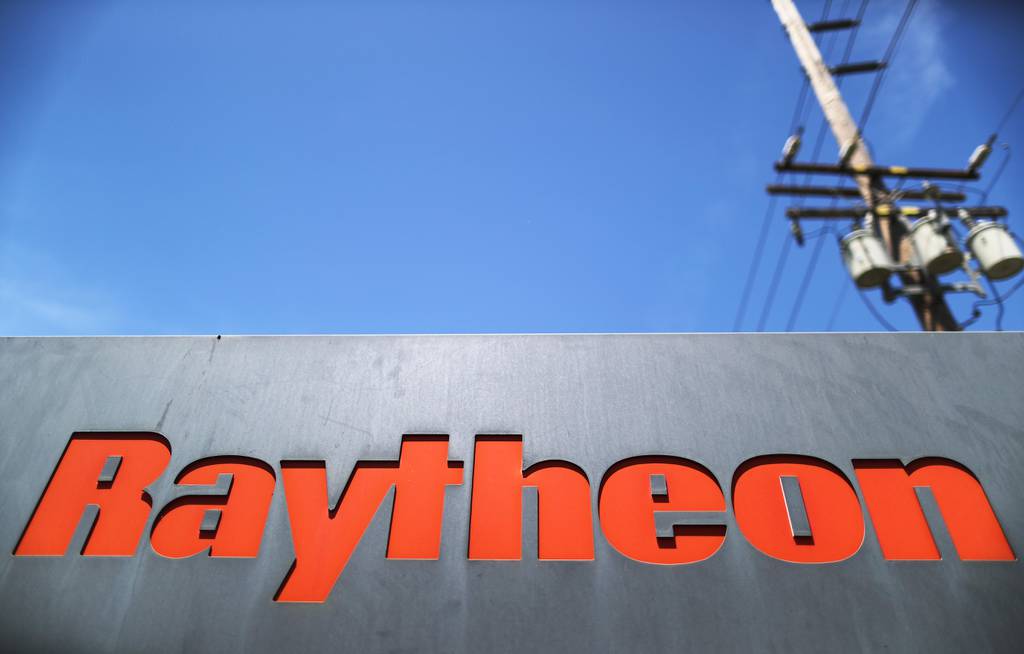WASHINGTON — Defense giant RTX last week announced CEO Greg Hayes will step down, and in his place will come Chris Calio, the company’s president and chief operating officer, who will take the top job in May.
For the world’s second-largest defense contractor, analysts say, the change in leadership reflects a transition from an era of disruption to one of maintenance.
Hayes oversaw the merger of Raytheon and United Technologies Corp. three years ago and the company’s rebranding as RTX this summer. Calio has been making sure the merger works, leading a recent reorganization of the company from four core divisions to three.
“Hayes was a change agent,†said Loren Thompson, a defense industry consultant who doesn’t count RTX as a client. “What RTX needs now is somebody who can run a stable enterprise with huge potential as effectively as possible.â€
RTX faces near- and long-term headwinds, both of which likely influenced the choice of Hayes’ successor, said Thompson, whose think tank, the Lexington Institute, receives donations from the company.
In the short term, said multiple analysts, the company’s top priority is to manage the crisis caused by a flaw in a geared turbofan engine manufactured by Pratt & Whitney, one of its subsidiaries. That flaw, announced this summer, sent RTX’s stock plummeting. Hundreds of aircraft will need their engines removed and inspected over the next several years as a result.
But in the longer term, RTX will need to navigate the potential for defense spending to plateau due to countries’ rising deficits, said analysts.
That potential was in part the thinking behind the company’s merger. RTX is an array of subsidiaries that straddle the commercial and defense markets. The mixture creates a diverse portfolio that can help lower risk for investors, said Jerry McGinn, who leads the Center for Government Contracting at George Mason University and previously oversaw industrial base policy at the Pentagon.
The commercial and defense markets “don’t always move in parallel,†he said. “Having both capabilities allows you some insulation.â€
By appointing Calio, RTX is likely trying to prepare for both horizons, Thompson said.
Hayes worked as UTC’s chief financial officer before the merger, but his background is in the company’s engineering wing, historically part of the resume for top executives at major defense firms. Calio’s experience is largely on the business side of the house, which analysts told Defense News could help in communicating with shareholders and focusing on profitability.
RTX declined to make Calio available for an interview.
Calio “has got to be a critical public spokesperson for both [RTX’s] capabilities and an advocate in Congress and in the Pentagon,†said Alan Chvotkin, a partner at Washington’s Centre Law Group.
Despite potential for growth in the commercial sector, RTX is still heavily dependent on defense contracts and appropriations from Congress, which has yet to approve a full-year Pentagon budget.
The difficulty in securing a spending bill dampens prospects for the company’s defense sector, even as the wars in Ukraine and Gaza have focused new attention on Raytheon missiles.
Those conflicts have emphasized the importance of air defense and precision munitions, said Bryan Clark, a fellow at the Hudson Institute think tank.
“On the missile system side, you’re going to be probably trying to maximize returns and see if these multi-year procurements of missiles come through,†said Clark, referring to long-term contracts for precision missiles being considered by Congress.
While the Pentagon has worked to increase production of such munitions in the last two years, its long-term focus is on China, which the 2022 National Defense Strategy labels America’s “pacing challenge.â€
Pentagon leaders have said innovation will be necessary to keep up, as demonstrated by new initiatives like Replicator.
Leaders with financial backgrounds, who may be more focused on their companies’ bottom lines, might be less inclined to make such ambitious investments, said Byron Callan, managing director at Capital Alpha Partners.
“If the DoD is expecting these large companies to pivot and spend less money on share buybacks and invest more in their businesses and free cash flow, some of these [leadership] changes suggest that is not going to happen,†said Callan.
Noah Robertson is the Pentagon reporter at Defense News. He previously covered national security for the Christian Science Monitor. He holds a bachelor’s degree in English and government from the College of William & Mary in his hometown of Williamsburg, Virginia.
Stephen Losey is the air warfare reporter for Defense News. He previously covered leadership and personnel issues at Air Force Times, and the Pentagon, special operations and air warfare at Military.com. He has traveled to the Middle East to cover U.S. Air Force operations.








